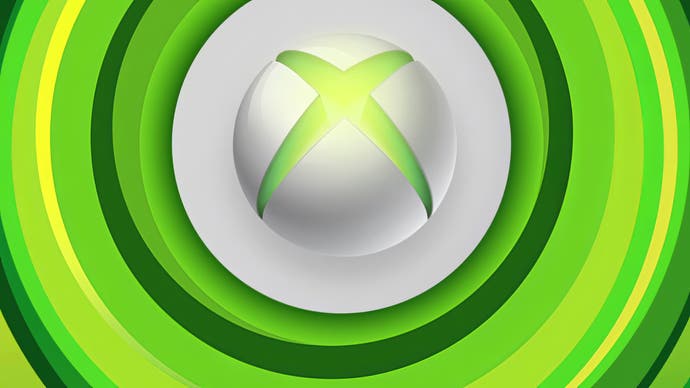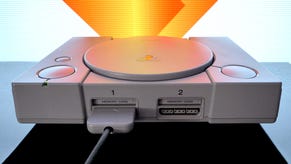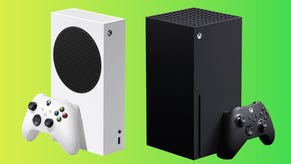DF Weekly: what should expect from Xbox's business update this week?
What exactly is the multi-platform strategy?
In this week's DF Direct Weekly, we spend some quality time with Helldivers 2, get to grips with the Final Fantasy 7 Rebirth demo and say a lot of positive things about the upcoming Penny's Big Breakaway - but discussion is dominated by the big Microsoft story. Just what's going on with its multi-platform plans? Why didn't the Xbox team provide immediate clarity and shut down rumours that have clearly spiralled out of control? If a 'business update' is coming this week, does that mean that some or all of the rumours are true?
The rumours in question are suggesting that a number of Xbox-exclusive titles are on their way to other platforms. On the face of it, that's nothing new. A number of Xbox properties have transitioned across to rival platforms - including PlayStation. Acquired IPs such as Minecraft and Call of Duty have always been multi-platform and will continue to be. The notion of lower profile games such as Hi-Fi Rush or Pentiment moving over to other consoles also shouldn't be that much of a big deal. Indeed, by exposing more users to these games, Microsoft may even gain some converts to its ecosystem - whether it's on console or PC.
The bone of contention appears to be its higher profile exclusives, with the likes of Halo and Indiana Jones mentioned - and that's caused a spectacular backlash, particularly amongst the Xbox influencers on Twitter/X who have relationships with Xbox execs. The theory, as I understand it, is this: if the crown jewels of the Xbox experience are available on PlayStation, why would anyone need an Xbox? Buying a PlayStation would offer access to the best of both worlds, negating the need to buy an Xbox in the first place. In turn, this has led to conjecture that Microsoft may even exit the hardware market.
- 0:00:00 Introduction
- 0:00:52 News 01: Is Microsoft embracing multiplatform gaming?
- 0:43:52 News 02: Hands-on with Helldivers 2
- 0:54:41 News 03: Final Fantasy 7 Rebirth impressions!
- 1:05:03 News 04: Penny’s Big Breakaway preview
- 1:11:42 Supporter Q1: What’s the minimum advisable frame-rate when using frame gen with a controller?
- 1:17:50 Supporter Q2: Is Nvidia purposefully limiting frame gen to the RTX 4000 series to increase sales?
- 1:27:18 Supporter Q3: Given that the Series S is the best-selling current-gen Xbox, should we consider it the baseline experience this gen?
- 1:34:14 Supporter Q4: Has the use of FSR been good or bad for console gaming?
- 1:43:14 Supporter Q5: Why doesn’t AMD often pioneer new graphics techniques like Nvidia?
- 1:51:44 Supporter Q6: Can John recommend any 3D Sonic titles?
For me, going into the business update due this week, the key questions are simple: what is the vision? What is the strategy? If Xbox is changing, what's it changing into? This gives rise to many more questions: is there a need for Microsoft to diversify its support for other consoles, and if so, why? Could it be that Game Pass is not financially sustainable or that its growth has plateaued? Is Game Pass actually fine and is Microsoft simply looking to increase profits - or to secure as much of an advantage from its mammoth acquisition run as it possibly can?
Perhaps the strategy is simply to take another stab at increasing TAM (total addressable audience) in the wake of its cloud strategy failing to be the game-changer Microsoft may have hoped for. The more games there are on as many systems as possible, the better it would be for Microsoft. And then there are the statements coming from Microsoft itself. Though recognising the reality of the market, Microsoft boss Satya Nadella is on the record as saying, "if it were up to me, I would love to get rid of exclusives on consoles". He's also said, "we have the ability to really do what we've always set out to do, which is build great games and deliver them to folks across all platforms, right, which is Xbox and consoles, the PCs, and now even including mobile gaming and cloud gaming."
The signs point to a change in strategy - the question is, is it going to be an evolution or a revolution? The meltdown from select Xbox influencers, perhaps briefed by people in the know who aren't happy with the change in direction, does suggest that Microsoft is - or maybe was - set on radical and controversial changes. Porting lower profile games isn't likely to be the game-changing strategy that will transform Xbox's fortunes. However, going bigger and bolder could have consequences on the existing business.
What I'm certain in saying right now based on our own sources is that there is no plan for Microsoft to exit the console market. Tenth generation consoles are in development - and I would like to see a more bold vision from the Xbox team here as delivering much the same hardware as Sony simply hasn't worked for them. How the team looks to make those consoles desirable if key titles are available on the closest competitor's hardware really is going to be a challenge to articulate.
I would be intrigued to see Microsoft co-opt existing hardware into its ecosystem, however. We've got an Xbox app on PC, but what we don't have is the kind of tailored experience that defines a console experience. And perhaps that dovetails into Microsoft's anticipated handheld strategy.
In our Direct this week, John Linneman talks about the concept of opening up Xbox's Windows-based operating system to work on more PC hardware, which would be challenging bearing in mind the infinite combinations of components out there. I've put more thought into this idea, but perhaps an interesting step forward would be to tie Xbox OS to specific PC hardware in the handheld space. A Ryzen 7 7840U or Z1 Extreme seems to be at the heart of every major Windows handheld right now, and as it seems that Microsoft is especially interested in the mobile space, establishing that as the baseline could deliver some intriguing results - a third Xbox tier, if you will, that sits below Xbox Series S.
Similar to the existence of Steam Deck and Valve's stated aim to tailor SteamOS for other AMD-based devices, Microsoft could do the same thing. A flagship Xbox device would be excellent, but co-opting other devices into the mix could be compelling. Developing another Xbox SKU may be onerous for developers, but arguably we're heading in that direction anyway with the success of Steam Deck. It's a strategic move that Microsoft could announce sooner rather than later - unlike its plans for its actual tenth generation console.
In truth, simply by committing to a new Xbox, Microsoft kills that particular rumour dead in its tracks - the question is more about the identity of Xbox if profound change is coming. And crucially, if there's a new policy in place on multi-platform releases - particularly on PlayStation - the leadership needs to be clear and unambiguous about it. But more than that, I get the idea that Microsoft is viewing gaming on a macro-scale we may not fully appreciate. If there's a bold and exciting plan in place, I can't wait to hear more about it.









